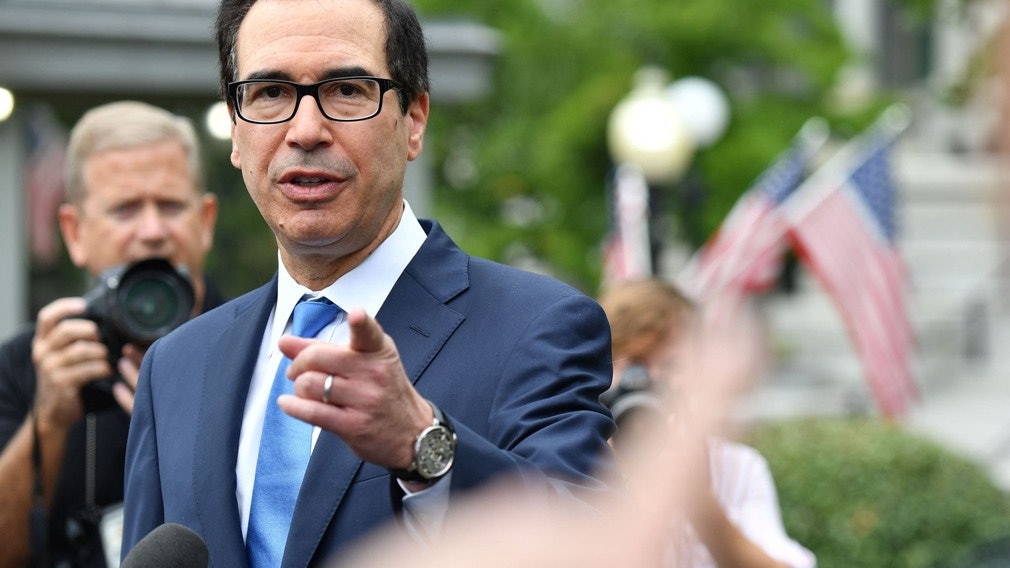After the China-US trade and economic cooperation deputy ministerial level consultation ended on September 20, the Chinese delegation originally planned to visit the US agricultural state this week, but the plan was cancelled. On September 23, US Treasury Secretary Steven Mnuchin confirmed that the plan was cancelled at the request of the United States.
US President Donald Trump, who attended the UN General Assembly, asked about the question of Mnuchin, which Mnuchin said was to avoid a “confusion” in the US-China trade negotiations.
On the same day, Mnuchin once again mentioned this topic in an interview with Fox News. “We believe that the timing of the visit (agricultural official) is not the best time. They will reschedule at another time. access.”
The news that Chinese officials visited the agricultural state was the first news released by the United States. US Secretary of Agriculture Sonny Perdue said on September 19 that the Chinese delegation will visit the US agricultural area accompanied by US representatives Wright Hize and Mnuchin. But the Montana and Nebraska Department of Agriculture said on September 20 that the visit was cancelled.
Han Jun, deputy director of the Central Agricultural Office of China and deputy director of the Ministry of Agriculture and Rural Affairs, said on September 21: “We did discuss the arrangements with the US, but we did not determine the schedule. Later, we comprehensively considered various factors and did not arrange for it. The US Agricultural State visited.” He also said that the plan adjustment has nothing to do with this economic and trade consultation, and it is a separate visit plan. The relevant US parties indicated that they will invite another visit.
The United States has repeatedly expressed its hope that China will purchase US agricultural products. It is good news for Chinese officials to visit the US agricultural state. Why is the United States finally canceling this itinerary?
On the one hand, the uncertainty of the negotiations is still very large, and the United States does not want to be criticized.
Before and after the China-US vice-ministerial negotiations, both countries have released certain goodwill. On September 11, China announced the first exclusion list of tariffed goods for the United States and Canada containing 16 items. On September 12, China announced that Chinese companies have begun to make inquiries regarding the purchase of US agricultural products. On September 16, China announced that it would impose tariff exemptions on the procurement of new US pork, soybean and other agricultural products. Chinese importers purchased about 10 US soybeans on September 23.
Trump announced on September 12 that the decision to impose a $250 billion tariff on goods will be postponed from October 1 to October 15. On September 20, the Office of the US Trade Representative released the first three batches of commodity exclusion lists for the first time.
If Chinese officials visit the US agricultural state, this series of actions is linked to show that the two countries have reached a certain consensus on agricultural issues.
Previously, Trump repeatedly accused China of failing to implement its commitment to purchase US agricultural products. Today, whether China excludes soybeans, pork tariffs, new purchases of US soybeans, or promises to go to agricultural states, Beijing is actually using Trump to fight back and forth.
Next, China and the United States will conduct a new round of negotiations, and the possibility of a breakdown in the negotiations will exist at any time. Once China and the United States cannot agree, China has already paved the way for many actions, and the United States will find it difficult to find an excuse to bring the problem to China. Naturally, the United States will become the target of public criticism. Mnuchin’s plan to cancel the Chinese official’s plan now is to avoid such awkward situation in the future. When there is still a lot of uncertainty in the negotiations between the two sides, the United States needs to avoid too much action and end up badly.
Moreover, the United States is not so anxious about agricultural products. Beijing’s suspension of large-scale imports of US agricultural products has indeed had an impact on US exports. But the Trump administration is also “digesting” the follow-up impact. In May, the White House proposed a $16 billion subsidy to US farmers, and is still urging Japan, Europe and other countries to purchase US agricultural products.
According to the plan, the US and Japan will sign a trade agreement during the UN General Assembly, which is expected to bring US$7 billion in export growth. In 2017, US agricultural exports to China were US$22 billion. The subsidies of the White House and Japan’s promise to buy US agricultural products can temporarily fill the gap in China’s no longer large-scale imports of US agricultural products. When the influence is in a state of control, the United States naturally does not want to appear to be asking for it.












